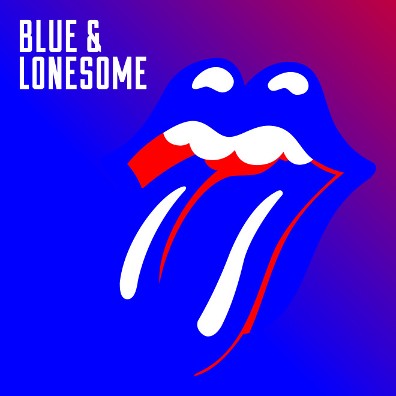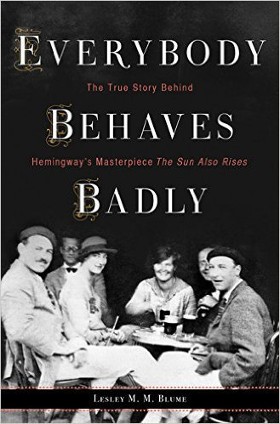
MUSIC Mondo Cozmo Refreshes Rock with Hopeful ‘Shine’
April 5, 2017
“MY FRIENDS ARE SO ALONE and it breaks my heart / My friends don’t understand we all are lost,” Josh Ostrander, aka Mondo Cozmo, sings in his moving new single “Shine.” Despite the sadness of those words, the tune is an anthem of hope with its chorus “Let ’em get high / Let ’em get stoned / Everything will be all right if you let it go.” The sentiment can be taken literally or as metaphor; either way, the song acknowledges our pain and then blasts it away through musical catharsis.
“Shine” follows a simple chord progression transposed into magical territory by clamping a capo on the fourth fret of Ostrander’s acoustic guitar—and by his soulful lyrics, melody and voice as he sings: “Stick with me Jesus through the coming storm / I’ve come to you in search of something I have lost. Shine down a light on me and show a path / I promise you I will return if you take me back.”

TV Sidney Lumet’s Moral Direction
Jan. 6, 2017
“I’M NOT DIRECTING THE MORAL MESSAGE,” the filmmaker says in American Masters: By Sidney Lumet, on PBS. “I’m directing that piece of the people, and if I do it well, the moral message will come through.”
Subtly or otherwise, a moral sense pervades the prolific director’s 44 movies in 50 years—starting with 12 Angry Men in 1957, until his last film, Before the Devil Knows You’re Dead, in 2007. In between, Lumet gave us Fail-Safe, Serpico, Dog Day Afternoon, Network, Prince of the City, The Verdict and many other pictures, at a rate of nearly one per year.
As he explains early in the PBS documentary, an experience that he had as a young soldier in World War II instilled in him a lifelong desire to fight injustice. Near Calcutta, Lumet witnessed a 12-year-old Indian girl being gang-raped by American G.I.’s on a train. He did not intervene.
Lumet, who grew up “dirt poor” on Manhattan’s Lower East Side during the Great Depression, says that all his films share the bedrock concern: “Is it fair?”
“I love characters who are rebels,” he says, “because not accepting the status quo, not accepting the way it’s always been done, not accepting that this is the way it has to be, is the fundamental area of human progress—and drama, God knows.” The other perennial source of drama is family, he says.
Lumet, who died in 2011 at the age of 86, three years after filming the interview, never received an Academy Award for Best Director. He was awarded an honorary Oscar in 2005.

MOVIES Neruda Explores Borders of Art, Reality
Dec. 30, 2016
“AM I FICTION?” the detective who is chasing Chilean poet Pablo Neruda asks in Neruda, the intriguing new film from director Pablo Larrain. In fact, the policeman played by Gael Garcia Bernal (above) is invented for the movie—not just as a plot device in a game of cat-and-mouse down the length of the slender South American country, but to symbolize real and imagined persecutors of leftists who “like to play the victim,” as another character in the film puts it.
Nobel Prize-winning poet Ricardo Eliecer Neftali Reyes Basoalto, who went by the pen name Pablo Neruda (after the Czech poet Jan Neruda), was also a diplomat and politician in Chile. When the country outlawed communism in 1948, Neruda—played in the film by Luis Gnecco—was forced into hiding, as other members of the party were arrested. (In the movie, a prison camp in the harsh Atacama Desert in northern Chile is run by Augusto Pinochet, who would later become dictator of the country after a coup d’etat against democratically elected socialist president Salvador Allende in 1973.)
A reflection of Neruda’s writing style, which sometimes ventured into surrealism, the film toys with the relationship between reality and illusion, including the suggestion that the pampered, hedonistic poet perhaps wasn’t suited to speak for the country’s impoverished masses.
As the story unfolds, the beautifully shot film moves from the urban sophistication of Santiago to the port city of Valparaiso, and then south to Chile’s Lake District—a landscape of mountains and cloud-shrouded pine forests. The chase continues to the snow of the country’s southern reaches, where the dogged policeman—by now obsessed as much with trying to prove his own existence and worth as with apprehending Neruda—concludes his journey. Like a “second sea,” the Andes Mountains separate Chile from Argentina, where the poet eventually finds exile, supported by Pablo Picasso and other artists in Paris.

MUSIC The Stones Roll Back into Chicago Blues
Dec. 27, 2016
IT MIGHT BE TEMPTING to dismiss Blue & Lonesome, the Rolling Stones’ new CD of blues cover versions, as minimal effort expended for maximum gain. After all, its 12 songs were all written by Chicago bluesmen in the 1950s, ’60s and ’70s, not by the Stones, and the band recorded the entire album in just three days, with no overdubs (the title track was done in one take). But with these raw, unpolished recordings, the Stones sound the most sincere they have for a long time. You hear the band playing live in the studio, but they might as well be performing at the smoky Checkerboard Lounge on Chicago’s South Side.
Four of the songs, including the title track, were originally recorded by Little Walter, and the galloping beat of his “I Gotta Go” is a highlight of the album. Other tunes simmer in a minor-key blues dirge, like “All of Your Love” by Magic Sam. Blue & Lonesome also covers Howlin’ Wolf (“Commit a Crime”), Little Johnny Taylor (“Everybody Knows About My Good Thing”), Eddie Taylor (“Ride ’Em On Down”), Lightnin’ Slim (“Hoo Doo Blues”), and Jimmy Reed (“Little Rain”).
The final two tracks are Willie Dixon songs— “Just Like I Treat You” and “I Can’t Quit You Baby,” the last with lead guitar by Eric Clapton, who happened to be working in the studio next door. The Stones are all in their 70s now (or close—Ronnie Wood is 69), and have returned to the passion for Chicago blues music that first inspired them more than half a century ago.

BOOKS The Opportunist Also Rises
Dec. 13, 2016
ERNEST HEMINGWAY’S RISE as a writer and public figure seemed fueled as much by his charisma—and all the well-connected supporters who helped launch his career—as by his talent and innovative writing style.
As Lesley M. M. Blume writes in her deliciously readable book Everybody Behaves Badly: The True Story Behind Hemingway’s Masterpiece The Sun Also Rises, (Houghton Mifflin Harcourt), Hemingway’s debut novel and ticket to stardom was a gossipy roman à clef about his own experiences traveling to a drunken fiesta in Spain with a group of friends in 1924. But the reportorial book, essentially non-fiction with just enough invention added to call it fiction, was elevated to high literature by a title taken from the Bible and the opening epigraph “You are all a lost generation” from Gertrude Stein.
Blume’s book reveals that for all his popularity, Hemingway was an opportunist and back-stabber who used his friends, wives and supporters to further his career. He then tossed them aside, and even publicly mocked them, once they had fulfilled their purposes for him. And yet, like those friends, Hemingway’s loyal fans and readers can’t help liking him, anyway.


